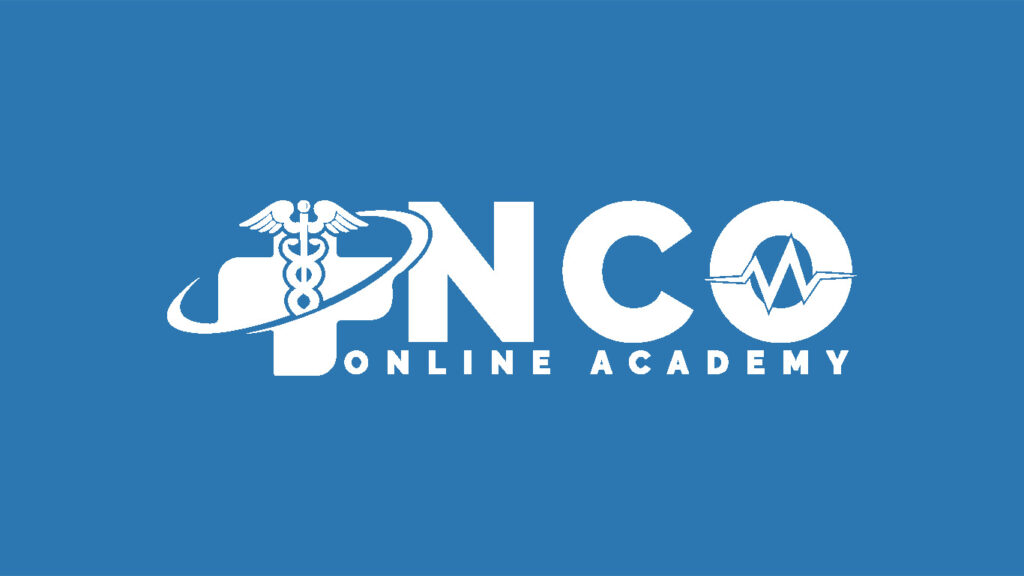The Future is Bright for HHA certification Online courses for nursing in the USA!
The USA is currently highlighting a highly potential career path that holds great promise for Home Health Aides (HHAs). With the aging population and the increasing preference for in-home care, HHAs are becoming more essential than ever. Let’s dive into the reasons why pursuing a career as an HHA is not just a smart choice, but a heartwarming one too.
The Future is Bright for Home Health Aides: A Deep Dive into the Booming Job Market
The healthcare industry is witnessing a remarkable surge in demand for Home Health Aides (HHAs), a trend that is reshaping the job market and offering a wealth of opportunities for those passionate about making a difference in the lives of others. With a projected job growth of 22 percent from 2022 to 2032, HHAs are stepping into a future where their skills are not just in demand but are essential to the fabric of personal care and health services.
Job Security and Growth
The statistics are in, and they paint a promising picture for aspiring HHAs. This incredible growth rate is a beacon of job security, signaling a robust and resilient sector. It’s a clear message that those who choose this path will find a stable and expanding field, ready to welcome them with open arms.
Competitive Compensation
When it comes to compensation, HHAs have much to look forward to. As of May 2023, the median annual wage stands at an impressive $33,530, with hourly earnings ranging from $14 to $23. This competitive compensation reflects the invaluable contributions HHAs make to the healthcare system and the lives of those they care for.
A Sea of Opportunities
The job market in America is brimming with possibilities for HHAs. From the vibrant energy of urban centers to the tranquil beauty of coastal towns, there’s a diverse range of settings where HHAs can thrive. Leading employers are on a constant lookout for compassionate individuals to bolster their teams, highlighting the abundance of opportunities that await.
Unparalleled Flexibility
One of the most attractive aspects of a career as an HHA is the flexibility it offers. Whether it’s full-time, part-time, or adjustable schedules, HHAs can find the perfect balance between their professional responsibilities and personal life. This flexibility is not just a perk; it’s a cornerstone of the profession, enabling HHAs to provide care without compromising their own well-being.
A Rewarding Career Path
At the heart of the HHA profession lies the profound impact these caregivers have on the lives of their clients. It’s a role that goes beyond the paycheck, offering emotional rewards and a sense of fulfillment that is unparalleled. HHAs stand as beacons of comfort and pillars of support, enriching the lives of families across the nation.
Training and Certification: Your Gateway to Success
Embarking on a career as an HHA requires dedication to training and certification. Prospective HHAs must navigate through state-approved programs and meet specific training hour requirements to ensure they are equipped with the knowledge and skills necessary for this vital role. The journey may be rigorous, but the rewards—both personal and professional—are immense.
The future for HHAs is not just bright; it’s radiant. With a booming job market, competitive compensation, abundant opportunities, flexible work arrangements, and the chance to make a real difference, it’s a career path that promises growth, stability, and fulfilment. For those ready to step into this rewarding field, the time is now. Embrace the journey, and become a part of a community that values and supports the health and well-being of individuals across the USA.
Key points to pursue an HHA certificate online nursing course: A Comprehensive Guide:
A journey to become a Home Health Aide (HHA) online is a commendable decision, especially in light of the burgeoning healthcare sector in the USA. The process is marked by convenience and flexibility, allowing you to balance studies with personal commitments. Online HHA certification courses are comprehensive, covering essential topics such as patient care, basic medical knowledge, and the legal aspects of home health assistance. These programs often include multimedia resources to enhance learning, and they culminate in assessments to ensure a robust understanding of the material. With the right training, HHAs can make a significant impact on the lives of those in need, offering not just medical support but also companionship and dignity in their daily lives. The certification path involves selecting a reputable program, dedicating time to study, and successfully completing the coursework and exams. Upon certification, a myriad of opportunities open up, from working with agencies to providing in-home care for private clients. The role of an HHA is both challenging and deeply fulfilling, as it involves making a real difference in the quality of life for patients and their families. As the demand for HHAs continues to rise, those with a passion for caregiving and a commitment to excellence will find a rewarding career waiting for them. The online route to certification is a modern solution to the need for qualified health professionals, and it stands as a testament to the adaptability and innovation present in today’s healthcare education.
1. Understanding the HHA Training Requirements
Wanting to be a home health aide in the USA is an admirable pursuit, offering a unique blend of personal satisfaction and professional growth. The journey begins with a comprehensive understanding of the training requirements, which are designed to equip you with the necessary skills and knowledge to provide high-quality care. Typically, aspiring home health aides must complete a training course that covers a wide range of topics, from personal care to basic medical assistance, and even includes elements of housekeeping and meal preparation.
The training ensures that you are well-prepared to handle the daily responsibilities of assisting individuals with disabilities or chronic illnesses. Moreover, it’s not just about practical skills; these courses also emphasize the importance of emotional support, a critical aspect of the job that fosters a deeper connection with clients.
In the USA, the federal minimum requirement for training is 75 hours, which includes at least 16 hours of supervised practical experience before you can start working with clients. However, it’s important to note that some states may have additional requirements, reflecting the high standards expected of healthcare professionals in different regions.
For those looking to join agencies funded by Medicare or Medicaid, the stakes are even higher, as these organizations typically adhere to stringent training protocols to ensure compliance with federal regulations. This often translates to more extensive training but also opens doors to a broader range of employment opportunities within the sector.
The investment in training is not just a regulatory hurdle; it’s a foundational step that sets the stage for a fulfilling career. Many agencies recognize this and offer free training programs, provided you commit to working with them for a certain period after certification. This not only alleviates the financial burden of training but also secures immediate employment, creating a win-win situation for both the aide and the agency.
As you navigate through the requirements and opportunities, remember that the role of a home health aide is more than just a job; it’s a chance to make a tangible difference in the lives of those in need. With each step of training and every hour of dedicated service, you become an integral part of a community that values compassion, care, and the well-being of its members. So, as you embark on this rewarding path, take pride in the knowledge that your efforts are building a healthier, happier society.
2. Evaluating the Costs
The journey to becoming a Home Health Aide (HHA) in the USA is marked by a spectrum of costs that reflect the diverse avenues available for education and certification. Prospective HHAs can find programs that offer free training, often tied to a commitment to work for the agency upon completion. This can be a mutually beneficial arrangement, providing the student with valuable education and the agency with a dedicated employee. On the other end, costs can rise to around $1,250, depending on factors such as the comprehensiveness of the training and the reputation of the institution.
Candidates need to consider not just the immediate cost but also the long-term implications of their choice. Free training programs might seem attractive initially, but they may come with contractual obligations that need careful consideration. Paid programs, while requiring upfront investment, might offer more flexibility and potentially a broader education that could open doors to better opportunities in the future.
Moreover, the depth of training provided can significantly impact one’s readiness to enter the field. A more thorough training program might cover aspects beyond the basics, such as specialized care techniques or advanced communication skills, which can be crucial in delivering high-quality care and standing out in the job market.
In addition, some states offer the possibility of being paid as an HHA for a family member through Medicaid’s Self-Directed Services and a Home and Community-Based Services (HCBS) Program, which can be an avenue worth exploring for those looking to care for a relative while earning an income.
Ultimately, the decision on where and how to pursue HHA education should be informed by a careful evaluation of the costs, the quality of training, and the potential return on investment in terms of career advancement and personal satisfaction in this noble and essential field of work.
3. The Independence Factor
Embracing the role of an independent Home Health Aide (HHA) brings with it a refreshing wave of autonomy and personalization in the realm of caregiving. This independence is not just a perk; it’s a pivotal factor that can significantly enhance the quality of care provided. With the ability to craft a care plan that meticulously aligns with the unique preferences and requirements of each client, an independent HHA stands out as a beacon of bespoke service in a sea of standardized care options.
This tailored approach is not only more satisfying for clients but also immensely fulfilling for caregivers. It fosters a deep sense of connection and understanding between the HHA and the client, paving the way for a more responsive and effective care experience. The flexibility inherent in this role allows for a dynamic response to the ever-changing needs of clients, whether it’s adjusting schedules, incorporating preferred activities, or managing complex health routines with a personal touch.
However, this freedom also comes with a substantial set of responsibilities. As an independent HHA, you become the architect of your practice, the decision-maker, and the problem-solver. You must be adept at navigating the healthcare landscape, staying informed of the latest best practices, and continuously expanding your skill set to cater to a wide array of health conditions and personal preferences.
Moreover, the independence factor necessitates a robust support system. Building a network of healthcare professionals, staying connected with community resources, and having access to ongoing training are crucial for maintaining a high standard of care. It’s about striking the right balance between independence and interdependence, ensuring that while you operate solo, you’re never truly alone in your quest to provide exemplary care.
In essence, the independence factor in home health care is a double-edged sword. It offers the freedom to personalize and innovate but demands a high level of professionalism, dedication, and resilience. For those who are passionate about making a difference in the lives of others, the role of an independent HHA is not just a job; it’s a calling that can bring immense satisfaction and a profound sense of accomplishment. Embrace the challenge, and you’ll find that the rewards of providing personalized, compassionate care are immeasurable.
4. Legitimacy and Recognition
Selecting the right online Home Health Aide (HHA) course is crucial for ensuring that the certification you receive is not only legitimate but also widely recognized by home care agencies across the United States. It’s essential to choose a program that adheres to the educational standards required for the HHA Certification Competency Test. Online courses, such as those offered by NCO Online Academy, Blackstone, Penn Foster, and Southern Tech, provide comprehensive training that covers all the necessary skills and knowledge areas, including patient care, communication, infection control, and emergency procedures. These programs are designed to prepare you thoroughly for the challenges of the HHA role, ensuring that you are well-equipped to provide high-quality care to patients. Moreover, completing an online HHA course will give you the confidence to excel in your career, knowing that your certification is respected and valued by potential employers. This, in turn, can open doors to numerous job opportunities and pave the way for a rewarding career in the healthcare industry. It’s also important to consider the flexibility and convenience that online courses offer, allowing you to balance your studies with other commitments. By selecting a legitimate and recognized online HHA course, you are investing in your future and taking a significant step towards a successful career in home health care.
5. The Certification Process
The journey to becoming a certified Home Health Aide (HHA) is a blend of knowledge and hands-on experience. After the completion of online coursework, the certification process enters a crucial phase: the clinical practice session. This step is not just a requirement; it’s a bridge between theoretical learning and practical application. It’s where aspiring HHAs can translate their online learning into actions that have a direct impact on patient care.
During these sessions, you’ll have the opportunity to work alongside experienced professionals, learning the nuances of patient interaction, understanding the importance of compassionate care, and honing the skills that are essential for providing top-notch home health services. It’s a time to ask questions, seek guidance, and solidify your understanding of the HHA role.
Moreover, these clinical practices are a proving ground for your dedication and capability. They offer a glimpse into the day-to-day responsibilities of an HHA and challenge you to apply your knowledge in diverse scenarios. From managing patient hygiene and comfort to performing basic medical procedures and responding to emergencies, each task you perform is a step towards your goal of certification.
The hands-on experience gained during these sessions is invaluable. It builds confidence, enhances competence, and prepares you for the realities of the job. It’s an affirmation of your commitment to the healthcare profession and a testament to your readiness to make a positive difference in the lives of those in need.
As you navigate through this phase, remember that each experience is a learning opportunity. Embrace the challenges, celebrate the successes, and always strive to improve. With dedication and perseverance, you’ll not only meet the certification criteria but also emerge as a skilled and compassionate caregiver, ready to embark on a rewarding career in home health care.
6. Securing Employment
Home Health Aide (HHA) is a commendable choice, offering the opportunity to make a significant impact on the lives of individuals requiring care and assistance. The journey towards this fulfilling role begins with comprehensive training and certification, which not only equips you with the necessary skills but also enhances your employability in this rapidly growing field. Prospective HHAs are encouraged to pursue a training course from an institution that not only meets their professional caregiving goals, but also surpasses them.
The certification process typically involves passing a written exam covering essential topics such as patient care and vital signs, followed by a practical skills exam to demonstrate your proficiency in a range of caregiving tasks.
As an HHA, you’ll be entrusted with monitoring and recording patient vital signs, communicating health changes to supervisors, providing personal care, administering medication, and even performing household chores to support your patients’ well-being. This role goes beyond mere job responsibilities; it’s about fostering a connection with those in your care, offering companionship, and enhancing their quality of life through dedicated support.
Aligning your education with the specific requirements of potential employers is indeed crucial. It not only prepares you for the practical aspects of the job but also demonstrates your commitment to professional development and adherence to industry standards. By understanding and meeting these requirements, you position yourself as a well-prepared and attractive candidate to healthcare providers seeking skilled and compassionate HHAs.
As you near the completion of your HHA training by online nursing course, take proactive steps to engage with potential employers, inquire about their specific certification expectations, and tailor your education accordingly. This strategic approach will not only increase your chances of securing employment but also set the stage for a rewarding career where you can truly make a difference in the lives of those who need it most. Start your journey with confidence, knowing that each step you take is a stride towards a noble and impactful profession.
Choosing the right HHA course is about more than affordability and convenience; it’s about investing in your future and enhancing your qualifications as a healthcare professional. With the right training and certification, you’ll be well on your way to a rewarding career as a Home Health Aide in USA country. We wish you the best of luck on this noble journey
Opportunity to grab access to the HHA course online for $99.99 at NCO.
NursingCertificationsOnline.com has taken a commendable step by offering its HHA course at an affordable price point. This initiative not only removes financial barriers for students but also aligns with the noble vision of contributing to a better future for society. By requiring students to complete certain tests and tasks, the platform ensures that the knowledge imparted is well-assimilated and retained, preparing students for the practical challenges they will face in the field.
NCO plays a pivotal role in shaping the future of home care by nurturing the next generation of caregivers. Through their efforts, individuals are not only gaining the knowledge and skills necessary to begin their caregiver journey, but also the confidence to provide compassionate care.
Nursingcertificationsonline.com (NCO) is giving free and also paid online courses for students to prepare them for their caregiver journeys.


